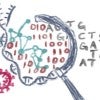
SeqScreen can reveal ‘concerning’ DNA
Rice computer scientists and collaborators develop a program to screen short DNA sequences, whether synthetic or natural, to determine their toxicity.

SeqScreen can reveal ‘concerning’ DNA
Rice computer scientists and collaborators develop a program to screen short DNA sequences, whether synthetic or natural, to determine their toxicity.
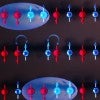
Rice lab’s quantum simulator delivers new insight
A Rice University quantum simulator is giving physicists a clear look at spin-charge separation, a bizarre phenomenon in which two parts of indivisible particles called electrons travel at different speeds in extremely cold 1D wires. The research is published this week in Science and has implications for quantum computing and electronics with atom-scale wires.
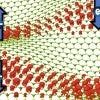
Bumps could smooth quantum investigations
Rice University materials theorists model a contoured surface overlaid with 2D materials and find it possible to control their electronic and magnetic properties. The discovery could simplify research into many-body effects, including quantum systems.
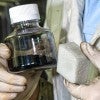
Cars could get a ‘flashy’ upgrade
Rice University chemists, working with the Ford Motor Company, processes waste plastic from end-of-life trucks into graphene for composite materials in new vehicles.
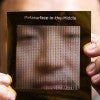
Eavesdroppers can hack 6G frequency with DIY metasurface
Rice engineers discovered 6G wireless “pencil beams” are vulnerable to eavesdroppers armed with DIY metasurfaces.
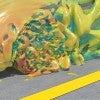
Sophisticated fluid mechanics model is on a roll
Engineers at Rice and Waseda universities produce a video simulation to illustrate the complex aerodynamics around a moving car and its tires.
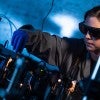
Rice ‘metalens’ could disrupt vacuum UV market
Rice photonics researchers have created a potentially disruptive technology for the ultraviolet optics market.

Rice U. students reverse engineer drug-smuggling drone for US Coast Guard
An award-winning team of Rice University engineering students that includes three Rice football players has reverse engineered a robotic drug-smuggling semi-submersible to help the U.S. Coast Guard fight foreign drug cartels.
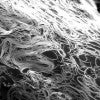
Rice scientists have developed an acid-based solvent that simplifies carbon nanotube processing.

Living sensor research wins federal backing
Rice researchers are leading a federally funded project to improve communications between microelectronics and microorganisms.
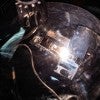
Graphene gets enhanced by flashing
Rice University scientists who developed the flash Joule heating process to make graphene have found a way to produce doped graphene to customize it for applications.
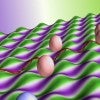
Don’t underestimate undulating graphene
A theory by Rice University scientists suggests putting graphene on an undulating surface stresses it enough to create a minute electromagnetic field. The phenomenon could be useful for creating 2D electron optics or valleytronics devices.

Army touts Rice contribution to graphene collaboration
Rice's graphene research is making its presence felt in the U.S. Army’s work to develop applications using the single-atom-thick form of carbon.
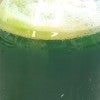
Bacterial ‘bully’ could improve food production
Lactic acid bacteria that thrive in many organisms, including humans, employ a hybrid metabolism that combines respiration and fermentation to give it an advantage over competitors. Researchers say the discovery could lead to enhanced techniques for food and chemical production.
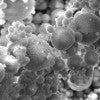
Rare earth elements await in waste
Rice University scientists applied their flash Joule heating process to coal fly ash and other toxic waste to safely extract rare earth elements essential to modern electronics and green technologies.